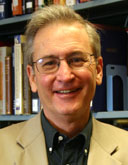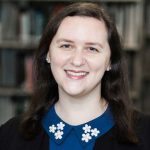|
Getting your Trinity Audio player ready...
|
“Editor Exchange” introduces USF’s open access journals, housed on Scholar Commons, and highlights a journal, its focus, the goals of the editors, and research.
Have you ever read a news article that included tables, charts, and statistics? Or wondered how that information was gathered and manipulated? What about understanding your own finances, such as loans and stocks?
Numeracy, a USF open access journal, advances education in quantitative literacy, allowing you to identify, understand, and interpret numerical information.
Numeracy is USF’s flagship open access journal, and has been publishing consistently since December 2007. As a result of Numeracy’s devotion to excellence, the journal was recently accepted for inclusion in Scopus, the largest abstract and citation database of peer-reviewed literature. Numeracy’s inclusion in Scopus indicates that the scholarly community recognizes the quality of the journal’s output and contribution to its subject area. At present, it is the only journal in Scopus to focus its attention on the critical topic of quantitative literacy.

Numeracy’s editors, Dr. Nathan Grawe and Dr. Len Vacher, explain that quantitative literacy (QL), also called numeracy, is an essential skill for critical thinking and reasoning across all disciplines. QL has become increasingly more critical for student and professional success, as computers and computations have become ingrained in our society and are a part of our everyday lives. Research suggests that QL is critical for success in personal decisions, academics, and professions, but many students graduate without a clear understanding of the research methods and tools that are used to gather and manipulate data.
It’s not just mathematics majors who need QL. Grawe, a professor of economics at Carleton College, and Vacher, a professor of geology here at USF, share common ground in their belief that QL is essential for all students. From biology, chemistry, and physics to history, economics, and psychology, QL is becoming increasingly necessary for student success due to its connection to analysis and reasoning. Even students who major in fields that don’t emphasize quantitative questions will encounter quantitative arguments in public and personal life. All too often, students struggle with college mathematics requirements, impeding student progress toward numeracy. But research is generating insights that can change that.
Beyond the importance of QL in the classroom, financial literacy, for example, is a practical, everyday aspect of QL. Whether at home or at work, the capacity to understand finance depends on basic QL skills. How else are you to know if there is a mistake in your loan agreement, or if there is a better, more efficient way to save for retirement? Financial literacy is key to the personal success of all people.
Sadly, in many countries, evidence points to serious QL deficits in the general population. As a result, QL shortfalls represent one of the more critical education issues of our time. Despite the great need, we know all too little about “what works” to improve QL skills. Numeracy seeks to change that:
“Society’s need for QL is too critical not to approach the subject with the same rigorous, scholarly dialog as is common in earlier-established disciplines. Numeracy provides this essential function to the QL movement.”
By exploring ways to improve QL in all levels of education, Grawe and Vacher hope to increase student success. Through research and the dissemination of information and ideas, it is Numeracy’s goal to use QL to empower citizens by creating a society in which they can confidently search out quantitative information, critique it, reflect upon it, and apply it in their public, personal, and professional lives. [1]
Learn more about this critical subject by reading Numeracy. As an open access journal, it is free for all readers. Discover QL today by delving into their latest issue.
Read some of Numeracy’s most popular articles:
Carlo de Bassa Scheresberg’s “Financial Literacy and Financial Behavior among Young Adults: Evidence and Implications” (2013)
This paper examines financial literacy and financial behavior in a sample of approximately 4,500 young adults age 25 to 34. The paper finds that most young adults lack basic financial knowledge. Financial literacy is especially low among certain demographic groups, such as women, minorities, and lower-income or less-educated people. Results show that respondents who display higher financial literacy or higher confidence in their math or personal finance knowledge have better financial outcomes: They are less likely to use high-cost borrowing methods, and they are more likely to plan for retirement or have set aside savings for emergencies.
Helen Oughton’s article, “Disrupting Dominant Discourses: A (Re)Introduction to Social Practice Theories of Adult Numeracy” (2018)
This paper argues that dominant measures of QL fail to capture skills that adults do have because they approach the subject matter without recognition of the social practice aspects of such work. Adults perhaps do have skills, but our questions are not well-designed to see them. After all, one aspect of QL is the recognition that “numbers” (i.e., statistics) are socially constructed—people decide what to measure and how. This doesn’t mean that statistics are just “made up,” but it does mean we need to be careful consumers who critically evaluate the correspondence between so-called measures and underlying meaning.
Meet the Editors in the Exchange:

Dr. Nathan D. Grawe is a professor of economics and Ada M. Harrison Distinguished Teaching Professor in the social sciences at Carleton College. He is the executive editor of Numeracy.
 Dr. H. L. (Len) Vacher is a professor of geology in the School of Geosciences at the University of South Florida. One of the founding co-editors of Numeracy, he is now one of its senior editors.
Dr. H. L. (Len) Vacher is a professor of geology in the School of Geosciences at the University of South Florida. One of the founding co-editors of Numeracy, he is now one of its senior editors.

Lesley Brooks is a Coordinator of Library Operations in the University of South Florida Libraries, working primarily as a production editor for USF’s open access journals.
[1] As the flagship journal of the National Numeracy Network (NNN), Numeracy seeks to advance the NNN’s vision of “a society in which all citizens possess the power and habit of mind to search out quantitative information, critique it, reflect upon it, and apply it in their public, personal and professional lives.”
* Image notes: The image used to accompany Carlo de Bassa Scheresberg’s “Financial Literacy and Financial Behavior among Young Adults: Evidence and Implications” is licensed under the Creative Commons Zero License for Public Domain. The creator of the image is 3dman_eu. The image used to accompany Helen Oughton’s “Disrupting Dominant Discourses: A (Re)Introduction to Social Practice Theories of Adult Numeracy” is licensed under the Creative Commons Zero License for Public Domain. The creator of the image is geralt.

